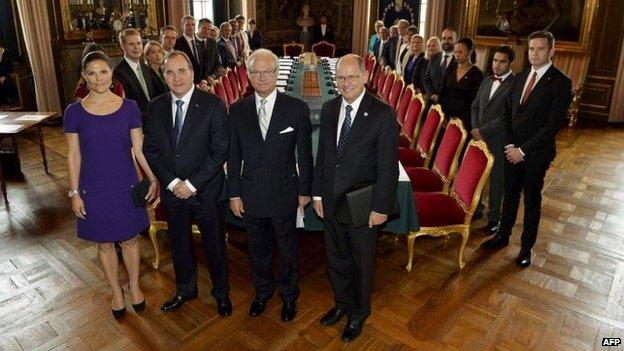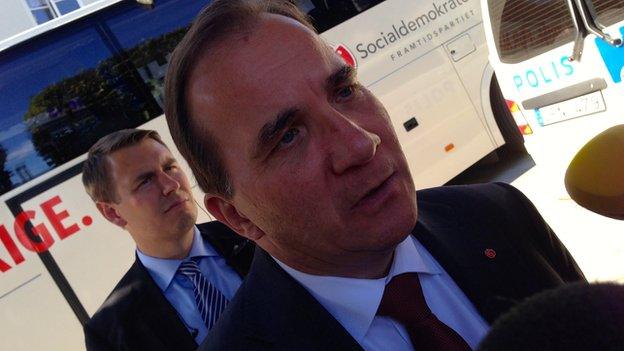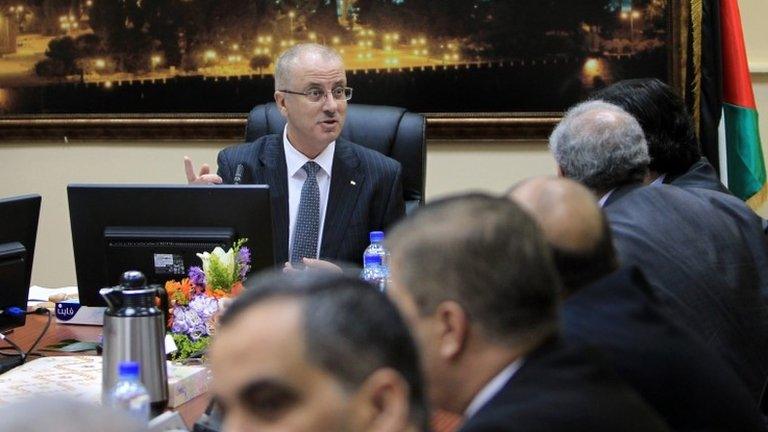Sweden to recognise Palestinian state
- Published

Sweden has just elected a new centre-left government led by Prime Minister Stefan Lofven (second left)
Sweden is to "recognise the state of Palestine", Prime Minister Stefan Lofven has said, the first long-term EU member country to do so.
"The conflict between Israel and Palestine can only be solved with a two-state solution," he said during his inaugural address in parliament.
It should be "negotiated in accordance with international law", he said.
Sweden last month voted out the centre-right Alliance coalition of Fredrik Reinfeldt after eight years.
That allowed the Social Democrats led by Mr Lofven to form a government with other parties on the left including the Greens.
"A two-state solution requires mutual recognition and a will to peaceful co-existence. Sweden will therefore recognise the state of Palestine," Mr Lofven said on Friday, without giving a timeline for the recognition.
Sweden will join more than 130 other countries that recognise a Palestinian state.
Most of the EU's 28 member states have refrained from recognising Palestinian statehood and those that do - such as Hungary, Poland and Slovakia - did so before joining the bloc.
Long campaign
The Palestinians have long sought to establish an independent, sovereign state in the West Bank, including East Jerusalem as its capital, and the Gaza Strip - occupied by Israel during the 1967 Six Day War.
Correspondents say Sweden's move is likely to be strongly criticised by Israel and the US, who argue that an independent Palestinian state should only emerge through negotiations.

Palestinians say the peace process is hampered by Israeli settlements like this one in the West Bank
In 1988, the late Palestinian leader Yasser Arafat unilaterally declared a Palestinian state within the pre-June 1967 lines.
This won recognition from about 100 countries, mainly Arab, Communist and non-aligned states - several of them in Latin America.
The 1993 Oslo Accord between the Palestine Liberation Organisation (PLO) and Israel led to mutual recognition. However, two decades of on-off peace talks have since failed to produce a permanent settlement.
In 2012, the UN General Assembly voted to upgrade the status of the Palestinians to that of a "non-member observer state".
It followed a failed bid to join the international body as a full member state in 2011 because of a lack of support in the UN Security Council.
- Published15 September 2014

- Published4 June 2014

- Published2 February 2014

- Published30 November 2012
